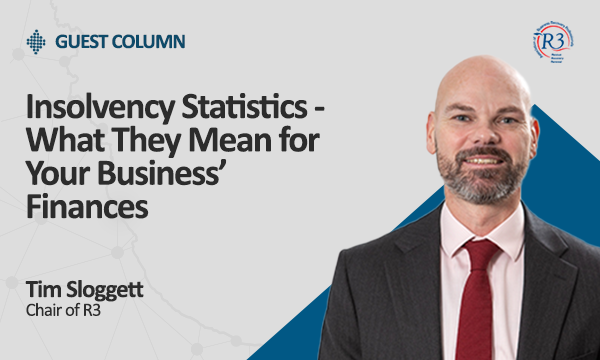Insolvency Practitioner Fundamentals Explained
Insolvency Practitioner Fundamentals Explained
Blog Article
The Insolvency Practitioner PDFs
Table of ContentsThe 3-Minute Rule for Insolvency PractitionerSome Known Factual Statements About Insolvency Practitioner A Biased View of Insolvency Practitioner4 Easy Facts About Insolvency Practitioner DescribedHow Insolvency Practitioner can Save You Time, Stress, and Money.The Ultimate Guide To Insolvency PractitionerThe Main Principles Of Insolvency Practitioner
Insolvency is when obligations are higher than the worth of the business, or when a borrower can not pay the financial debts they owe. A business can come to be insolvent as a result of a variety of circumstances that result in bad money circulation. When confronted with bankruptcy, a company or person can get in touch with financial institutions directly and restructure financial obligations to pay them off.
Insolvency can cause bankruptcy proceedings, in which lawsuit will be taken against the financially troubled individual or entity, and possessions. Insolvency Practitioner might be liquidated to repay impressive financial obligations. Local business owner may call lenders straight and restructure debts right into more manageable installations. Financial institutions are commonly responsive to this method since they wish to be settled and stay clear of losses, even if the payment is on a postponed routine.
The proprietor creates a proposition detailing just how the financial obligation might be restructured making use of expense decreases or various other prepare for assistance. The proposal reveals financial institutions exactly how the business might create sufficient cash money flow for rewarding operations while paying its financial obligations. Generally, a forgiven financial debt may be thought about income by the Irs (INTERNAL REVENUE SERVICE).
The Main Principles Of Insolvency Practitioner
When a service needs to pay increased costs for items and solutions, the company passes along the expense to the customer. Instead of pay the boosted price, several customers take their organization in other places so they can pay less for a product and services. Losing clients results in shedding revenue for paying the firm's financial institutions.
When procedures stop, so does the company's income. Some firms come to be financially troubled since their goods or services don't develop to fit customers' transforming requirements.
9 Easy Facts About Insolvency Practitioner Shown
Expenditures surpass revenues and costs remain overdue. Types of bankruptcy include cash-flow bankruptcy and balance-sheet insolvency. Cash-flow insolvency takes place when a business has the assets to cover their financial debts however they are in the wrong form, such as property instead of fluid funds. Balance-sheet bankruptcy, on the other hand, suggests an absence of properties in any type to cover financial debts.
The internal revenue service states that a person is bankrupt when the complete liabilities exceed complete assets. Insolvency Practitioner. A bankruptcy, on the various other hand, is an actual court order that depicts just how a financially troubled person or organization will pay off their financial institutions, or exactly how they will sell their properties in order to make the payments
Excitement About Insolvency Practitioner
When a firm or person is bankrupt, they can not satisfy their economic responsibilities. Insolvency is not the very same as insolvency, although a business that has become financially troubled look at this site may file for insolvency. Insolvency is the state of not being able to pay your obligations while personal bankruptcy is a legal procedure to release your financial debts.
Recognizing the variables that can bring about bankruptcy, such as overspending, can help you avoid bankruptcy and its consequences.
Insolvency Practitioner Can Be Fun For Everyone
It is well recognized that directors and officers of corporations (and managers of restricted obligation firms) owe fiduciary tasks to their organizations and their investors (or participants). These fiduciary obligations are defined by state laws and, though there are variants from one state to another, they usually consist of a duty of loyalty and a duty of treatment.
The duty of treatment needs supervisors and policemans to work out diligence, to make educated decisions, and to act in good faith to ensure that their actions are in the most effective rate of interest of the business. Beyond the scope of this discussion, some states enable these obligations to be limited either by so noting in the organizational papers or conforming with other needs.
Insolvency Practitioner Things To Know Before You Buy

Be cautious regarding providing investors special therapy at the expenditure of creditors (e.g., authorizing and funding a returns or a supply redemption). Take care about favoritism between courses of investors. Clear here are the findings up efforts to learn all the facts prior to taking a details strategy; supervisors ought to genuinely believe that any type of choices made are in the very best interests of the firm in its whole (i.e., decisions will certainly be reviewed in knowledge due to the impact of such actions on the firm).
In any type of insolvency or bankruptcy proceeding, payments made to certain financial institutions at the cost of other lenders can be clawed back, particularly if there is some connection between the business and the financial institution. Consider recommending at an annual stockholder conference (or any kind of other meeting of stockholders) a resolution attesting that all prior organization decisions and activities taken by the directors and police officers of the company were absorbed good confidence after an exercise of practical care.
The Buzz on Insolvency Practitioner
Completely divulge any kind of personal or company connections with events on the other side of transactions including the company to avoid the appearance of a problem of passion. In evaluating potential fund raising deals or a sale of possessions of the struggling company, realize that these deals might be inspected later because of any type of subsequent growth of directors' fiduciary tasks to include lenders.
Report this page